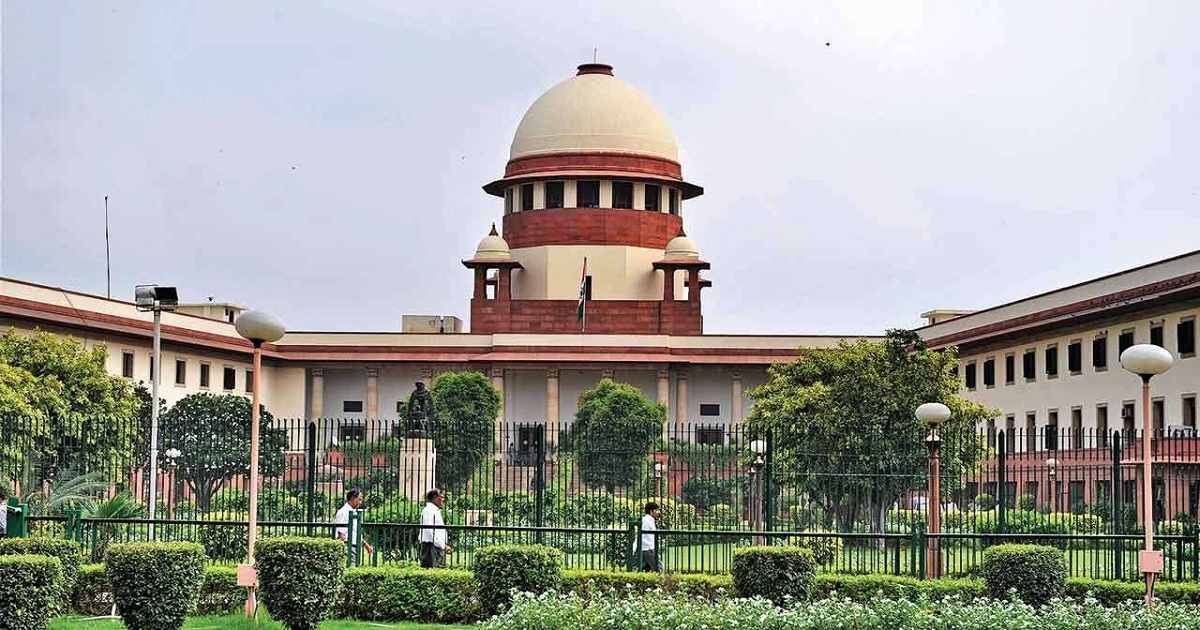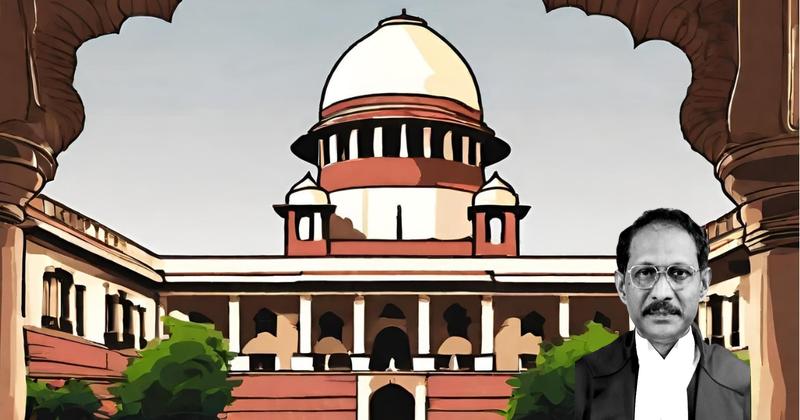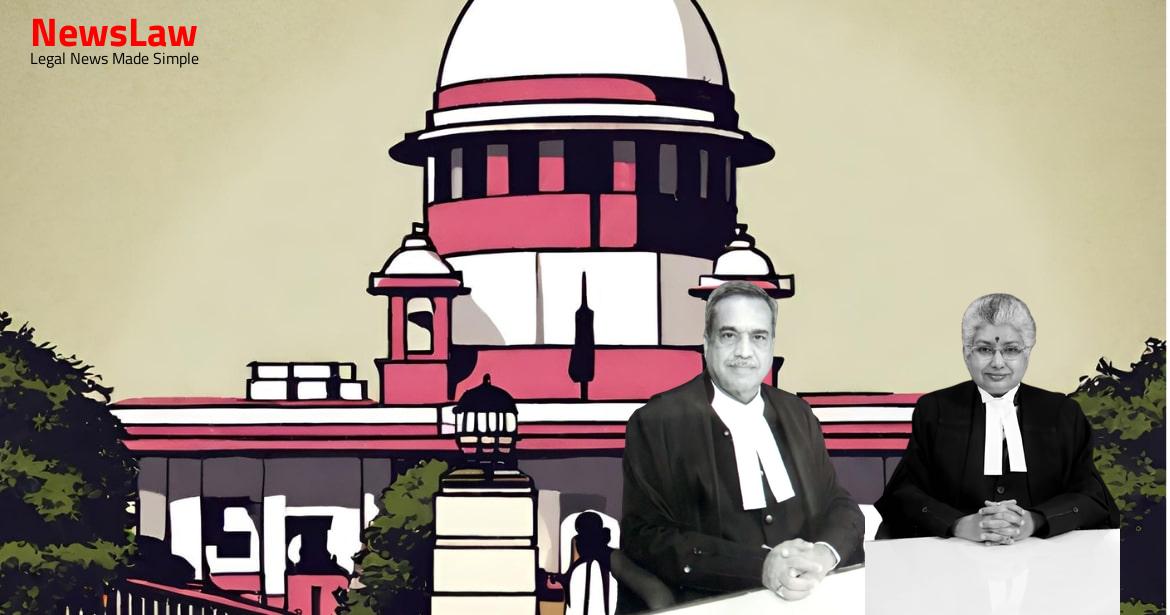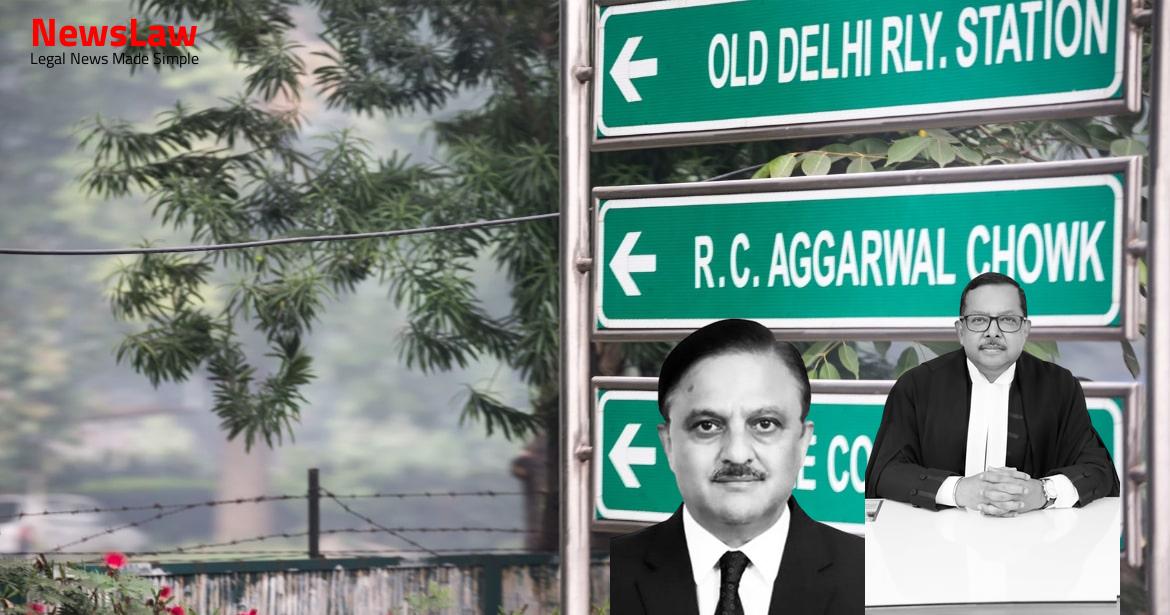Dive into the intricacies of a significant legal battle between the Municipal Committee Katra and Ashwani Kumar. Explore the contentious dispute revolving around contractual obligations and monetary relief, where the appellant, Municipal Committee Katra, and the respondent, Ashwani Kumar, clashed over the interpretation of contractual clauses. Unravel the complexities of the case as it unfolds in the courtrooms, shedding light on the principles of contractual law and equitable remedies. Discover how the Supreme Court’s ruling reshapes the landscape of contractual disputes, setting a precedent for future legal proceedings.
Facts
- The bidder worked 33 days less than the stipulated contract period of 365 days.
- The petitioner sought refund for the 33 days through a petition questioning the order of 12.08.2013.
- Respondent rejected the claim stating that petitioner was at fault for not fulfilling terms of the Auction Notice.
- The contract period was curtailed, resulting in a loss of revenue for the petitioner.
- The court ordered consideration of the claim within six weeks from 03.07.2013.
- The contract required a deposit of 40% of the bid amount within 24 hours.
- The bid amount was to be paid in installments with a bank guarantee.
- The respondent filed a civil suit challenging the NIT Clause-8 as arbitrary.
- The Municipal Committee issued a temporary injunction to grant the contract to the respondent.
- Several bids were received in response to the NIT for supply of mules and mazdoors.
- The claim of the respondent was rejected initially but later accepted as the highest bidder.
- Point raised that petitioner’s failure to provide post-dated cheques and bank guarantee delayed the contract allotment.
- The contract period ultimately ran from 10.05.2010 to 07.04.2011.
- The Single Bench decided on the case in OWP No.1199 of 2013 on 20.02.2015.
- The respondent-bidder’s failure led to the non-issuance of the allotment letter to start performing under the contract.
- Despite the above, the Single Judge ruled in favor of the bidder for payment of pro-rata auction amount for the days worked less.
- Both the appeal and cross-appeal against the Single Judge’s order were rejected in a final judgment.
- The damages suffered by the bidder were quantified by the Single Judge based on the net revenue collected during the initial 32 days of the contract period.
- The bidder failed to comply with Clause-8 of the NIT by not depositing post-dated cheques and bank guarantee, resulting in the non-issuance of the work order.
Also Read: Jagvir Singh v. State of Uttar Pradesh: Acquittal on Benefit of Doubt
Issue
- The issue in the case revolved around the High Court’s jurisdiction to entertain a civil dispute related to contractual obligations and monetary relief/damages.
- The petitioner had initially complied with some conditions of the auction notice but failed to meet the requirement of issuing post-dated cheques and a bank guarantee as stipulated.
- This non-compliance led to a delay in the allotment letter being issued, which affected the petitioner’s ability to perform under the contract.
- The petitioner sought relief from the High Court through various appeals and interim directions, allowing him to continue performing under the contract until the withdrawal of the appeal by the respondents.
Also Read: Land Acquisition Compensation Dispute: Appellants vs. Karnataka Neravari Nigam Ltd.
Arguments
- Appellants were contemplating quashing the tender but awarded work order to the respondent based on court order.
- Respondent-writ petitioner’s counsel vehemently opposed the appellants’ submissions.
- Appellants argued that respondent did not comply with Clause-8 of NIT, hence could only seek damages in civil court.
- High Court justified award of damages to respondent based on equitable concept of social welfare state.
- Respondent challenged Clause-8 in a civil suit despite participating in auction with full knowledge.
- Municipal Committee and its officials challenge the orders.
- The respondent-writ petitioner was not allowed to work for 33 days despite depositing the entire amount for the full period of 365 days.
- During the 33 days, the appellants operated the work themselves and likely made profits, yet also charged the respondent-writ petitioner for the same period.
- The delay in issuance of the work order was attributed to the respondent’s failure to comply with Clause-8 of the auction notice.
- It was argued that the appellant was unduly enriched by not paying the respondent for the 33 days when they operated the work and earned income.
- The High Court quantified damages suffered by the respondent and granted equitable relief after balancing the equities, which should not be interfered with by this Court.
Also Read: Sukhpal v. NCT Of Delhi: Upholding Conviction for Murder of Usha
Analysis
- Petitioner responsible for delay in contract allotment, not the respondents.
- Disputes arising from contractual obligations are not under the jurisdiction of the High Court.
- High Court should have directed the petitioner to claim damages through the appropriate court.
- Respondent’s conduct was covered by the principle of ‘nullus commodum capere potest de injuria sua propria.’
- Petitioner’s delay in litigation led to missing out on the opportunity to work for the entire contract period.
- Highest bidder did not execute the contract, leading to the respondent becoming the highest bidder.
- Respondent participated in the tender process with full understanding of the auction notice terms.
- In the case of Union of India and Ors. v. Puna Hinda, the Court held that disputed questions of fact cannot be raised in a writ petition.
- For private law contractual matters without statutory flavor, parties should adjudicate through their agreed forum.
- The principle of ‘nullus commodum capere potest de injuria sua propria’ (no man can take advantage of his own wrong) was applied in Union of India v. Maj. Gen. Madan Lal Yadav, preventing avoidance based on the respondent’s own wrong.
- Broom’s Legal Maxim emphasizes that no man shall take advantage of his own wrong, a principle upheld in courts of law and equity.
- The author also cites the maxim ‘legis auxilium invocat quaerit qui in legem committit’ to support the reasonableness of not taking advantage of one’s own wrong.
- 1. If a man is bound to appear on a certain day, and before that day the obligee puts him in prison, the bond is void.
- 2. The principle that he who prevents a thing from being done shall not benefit from the non-performance he caused is sound.
- 3. A person should not be able to take advantage of their own actions that led to non-compliance with an obligation.
- The impugned judgments dated 20 February, 2015, and 30 September, 2015, are deemed illegal and without jurisdiction.
- The resurvey may not be viable, but the measurement books of the work carried out over time can serve as a basis for determining the amount owed to the writ petitioner.
- Without acceptance of the joint survey report by the competent authority, the writ petitioner cannot claim rights based on the inability to conduct measurements after the passage of time.
Decision
- No order as to costs.
- Pending application(s) disposed of and quashed.
- Appeals allowed.
Case Title: MUNICIPAL COMMITTEE KATRA Vs. ASHWANI KUMAR (2024 INSC 398)
Case Number: C.A. No.-014970-014971 – 2017



